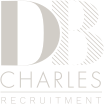AI is the latest buzzword to hit recruitment, but will artificial intelligence have a positive or a negative impact on the industry? And just how many people are using AI in recruitment right now?
According to a recent survey, the use of recruitment AI has tripled over the past year — 3 in 10 UK employers now use AI in their recruitment processes, up from 1 in 10 in 2022. Interestingly, though, this big jump to LLMs and generative models seems limited to larger corporations. A hefty 48% of small to medium-sized enterprises (SMEs) claim they have no plans to implement AI into their recruitment operations.
So, who’s in the right? Are corporations forward-thinking and time-saving by using AI? Or are SMEs correct in identifying that AI recruitment just isn’t worth the investment yet?
Let’s dive into the pros and cons.
What Are the Benefits of AI Recruiting?
- Optimization through automation — Much like Liam Neeson, recruiters have a very particular set of skills. Skills that are not always best utilised by hours of admin. Using AI to automate tasks like application acknowledgements or auto-scheduling interviews can free up recruiters to focus on the important things, like making sure both client and candidate find their perfect match.
- Volume screening — 26% of UK applicants have admitted to using AI to mass apply for jobs, leaving recruiters with increasing numbers of applications to wade through. In some cases, AI can be a useful first-pass vetting tool to narrow down candidates.
- Reducing bias — Running CVs and cover letters through AI models could go some way towards reducing inherent bias during the recruitment process. In fact, 64% of job-seekers say that they trust AI to be less biased than humans.
What Are the Disadvantages of AI Recruiting?
- Increasing bias — Unfortunately, the vision of AI as a completely unbiased tool is not always correct. AI models are only as good as the data they’re trained on, and if that data includes biased information, the AI will learn that same bias too. This is so prevalent that the government’s Responsible AI in Recruitment guidance makes special note of how to run a bias audit on AI recruitment systems.
- Lack of nuance — As many people who have used ChatGPT for fact-finding can testify, AI is not perfect. Solely relying on it to screen applications could lead to the ideal candidate slipping through the net. While it might be useful for simple roles with a high number of suitable applications, AI also doesn’t have the nuance to vet for more complex executive positions or candidates with transferable skills.
- The loss of human contact — If a candidate is faced with AI from the application stage to the interview, it’s almost impossible to get a true idea of the company they’re joining (or, at least, impossible to get a positive idea). Despite this, 43% of large companies admit to using AI in even their interviews, with some relying on automated chatbots to ask the questions. Candidates want to know who they’ll be working with, and an impersonal interview process will most likely be off-putting to top applicants.
How Will AI Change Recruitment in the Future?
There’s no doubt that AI is changing the landscape of recruitment and, like any big change, it can feel scary or overwhelming. But the truth is that AI simply isn’t as capable as it’s often made out to be in the headlines — and it’s not all bad.
While AI might not be up to the task of finding the Technical Administrator with the perfect blend of ERP experience and people skills to fit into a fun, laid-back office, it could provide predictive analytics that help determine the right salary to lure the best person for the job. AI can also take care of all those little in-between jobs, giving us more time to spend talking to you about your needs, priorities, and worries. By identifying the right ways to use AI tech, we can work on making recruitment a little more human.
Want to find out more about how DB Charles offers forward-thinking recruitment services with a personal touch? Let’s talk.












